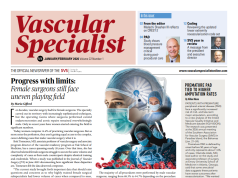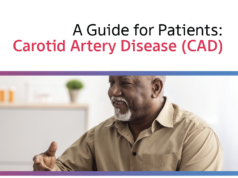
There is a global interest in assessing whether metformin, which has a long track record of safety and efficacy, is relatively inexpensive and is taken by millions of people every day for type-2 diabetes, has an effect on the progression of abdominal aortic aneurysms (AAAs).
The LIMIT trial, a prospective randomized, level one, placebo-controlled, blinded trial, sponsored by the National Institutes of Health (NIH), is designed to investigate whether metformin significantly prevents the enlargement of existing AAAs in non-diabetic people.
“It is difficult to make an asymptomatic patient better. And so, you want a treatment that is not going to be very arduous, and not be very high risk. [It should be] relatively inexpensive, [and] easy to take, and metformin checks all those boxes,” explains Ronald L. Dalman, MD, from Stanford University in Stanford, California, at the 2023 VEITHsymposium in New York City (Nov. 14–18), who invites the U.S. vascular community to get involved in the trial.
“If metformin works in this application, it may also work in secondary treatment after [a] patient has had endografting to reduce the need for secondary procedures for endoleaks, for graft migration, or aneurysm enlargement. It could be [used] in a variety of applications both as a de novo treatment, as well as an adjunctive treatment following surgery. Here is something that could be a complement to surgical management, both before, during or after surgical intervention,” adds Dalman, who is the Walter C. and Elsa R. Chidester professor and vice chair of surgery for clinical affairs at Stanford Medicine. He is also the inaugural executive editor for the Journal of Vascular Surgery suite of publications.
There is some evidence available, albeit not without its limitations, to support the use of metformin in AAA management. A systematic review and meta-analysis of drug repurposing for the treatment of AAA—published online ahead of print the week following VEITH 2023 in the European Journal of Vascular and Endovascular Surgery (EJVES)—indicates that metformin and statins “may provide some effect in slowing AAA progression.”
Authors led by Joachim Sejr Skovbo Kristensen, from Odense University Hospital and the University of Southern Denmark in Odense, Denmark, do acknowledge, however, that “no definitive evidence was found for any of the [12] investigated drugs in this study.”
They posit that publication bias “may have influenced the positive findings,” and go on to stress that “further research is needed to identify effective medical treatments for AAA progression.”












